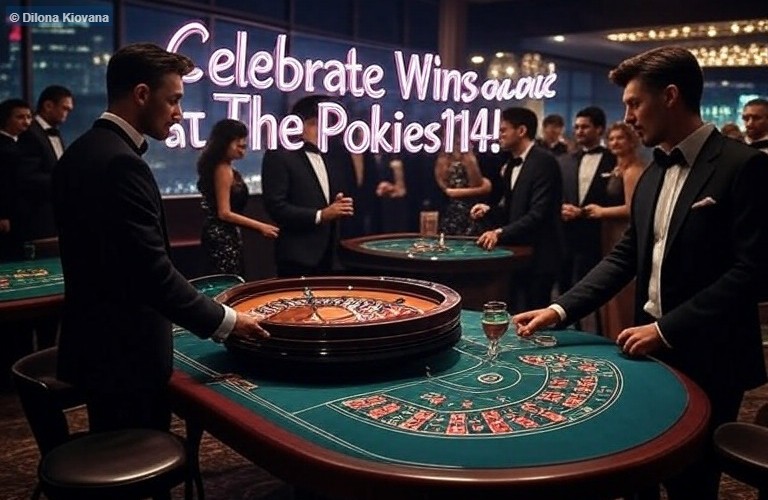The Neon Pulse of a Virtual Outback
The sun dips below the crimson horizon of the Australian desert, casting long shadows over the ancient red earth. But in the quiet hum of urban apartments and coastal homes, another world awakens—one illuminated not by the Southern Cross, but by the glow of screens. This is the realm of online casinos, a digital outback where fortune favors the bold, and every click carries the thrill of the unknown. Here, the spirit of adventure that once drove explorers into the wilderness now propels players into the boundless expanse of virtual gaming.

Australia, a land of contrasts, has always been a place where tradition meets innovation. From the sacred stories of the Dreamtime to the cutting-edge technology of modern cities, the continent thrives on duality. And nowhere is this more evident than in its relationship with gaming. The clinking of coins in a pub’s ThePokies 114 machine echoes in the collective memory, but today, that sound has evolved into the sleek, instantaneous spin of a digital reel. The outback may be vast, but the internet has made the world of gaming even larger—a universe where chance and strategy collide in real time.
The guide Exploring the world of online casinos and gaming, available at https://artraker.org/exploring-the-world-of-online-casinos-and-gaming/ , is crucial for any Aussie gambler.
The Evolution of Chance: From Mechanical Reels to Quantum Algorithms
Gaming in Australia is not a new phenomenon. The first poker machines, or "pokies," appeared in the early 20th century, their gears and levers a testament to the mechanical ingenuity of the era. But as the world hurtled into the digital age, so too did the machines. The transition from physical casinos to online platforms was not just a shift in medium—it was a revolution.
The Birth of a Digital Era
In the 1990s, as the internet began to weave its web across the globe, Australia found itself at the forefront of a new frontier. The first online casinos emerged, offering players the chance to experience the thrill of gambling without leaving their homes. No longer confined to the smoky backrooms of pubs or the opulent halls of casinos, gaming became democratized. A farmer in the remote stretches of Western Australia could now spin the reels of The Pokies114 with the same ease as a high roller in Sydney’s Star Casino.
But this was only the beginning. The real transformation came with the rise of artificial intelligence and blockchain technology. Algorithms now govern the odds, ensuring fairness with mathematical precision. Cryptocurrencies like Bitcoin and Ethereum have introduced anonymity and security, while virtual reality (VR) promises to blur the line between the digital and the physical. Imagine stepping into a cyberpunk rendition of Melbourne’s Crown Casino, where the dealer is a hologram, and the cards shuffle themselves in midair.
The Art of the Game: Where Technology Meets Creativity
Gaming is no longer just about luck—it is about experience. Modern online casinos are immersive worlds, designed with the same care as a AAA video game. Developers collaborate with artists, musicians, and storytellers to craft games that are as visually stunning as they are engaging. Slots like Book of Ra and Mega Moolah are not just games; they are narratives, each spin a chapter in an unfolding story.
And then there is Artraker, a movement that seeks to elevate gaming to an art form. Inspired by the avant-garde, Artraker casinos blend aesthetics with interactivity, turning every bet into a brushstroke on a digital canvas. The screens pulse with neon hues, the soundtracks swell with electronic symphonies, and the players are not just gamblers—they are participants in a living, breathing work of art.
The Psychology of Play: Why We Chase the Rush
What drives millions of Australians to log in, deposit, and play? The answer lies in the human brain’s wiring. Dopamine, the neurotransmitter of reward, floods the system with every near-miss, every jackpot, every strategic victory. Psychologists have long studied the allure of gambling, but the digital age has added new layers to the phenomenon.
The Illusion of Control
In a world where so much feels uncertain, gaming offers a sense of agency. Players believe—often subconsciously—that their choices influence the outcome. This is the illusion of control, a psychological quirk that keeps us coming back. Whether it’s choosing the right moment to hit in blackjack or selecting a "lucky" slot machine like PokiesNearMe, the brain craves the feeling of mastery.
The Social Fabric of Virtual Casinos

Paradoxically, online gaming is both solitary and communal. Players may sit alone in their homes, but they are connected to a global network of competitors and allies. Live dealer games stream real-time interactions, while chat rooms buzz with strategies and celebrations. In this digital space, friendships are forged, rivalries are born, and for a brief moment, the isolation of modern life dissolves into shared excitement.
Yet, this connectivity comes with risks. The same algorithms that create thrilling experiences can also exploit vulnerabilities. Responsible gaming initiatives, such as self-exclusion tools and spending limits, are now integral to reputable platforms. The challenge lies in balancing the thrill of the game with the well-being of the player—a tightrope walk that defines the ethical landscape of online casinos.
Australias Regulatory Labyrinth: Navigating the Legal Desert
The legal status of online gambling in Australia is as complex as the country’s landscape. The Interactive Gambling Act of 2001 prohibits online casinos from operating within Australia, yet it does not prevent Australians from playing on international sites. This legal gray area has created a paradox: a nation of avid gamblers with some of the strictest regulations in the world.
The Battle for Regulation
State governments grapple with the economic benefits of gaming—tax revenue, tourism, employment—against the social costs of addiction and financial harm. The debate rages on: Should Australia embrace the industry, regulating it to ensure safety, or double down on restrictions to curb problem gambling?
Some argue for a licensed, domestic market, where operators are held to rigorous standards. Others advocate for a complete ban, citing the dangers of unchecked access. Meanwhile, offshore casinos continue to thrive, operating in a legal twilight where enforcement is difficult and consumer protections are limited.
The Rise of Cryptocurrency: A Wild West of Its Own
Bitcoin and other cryptocurrencies have added another layer of complexity. Anonymous, decentralized, and borderless, crypto casinos operate beyond traditional oversight. For some, this is liberation—a return to the lawless spirit of the frontier. For regulators, it is a nightmare. How do you police a system that was designed to evade control?
Yet, blockchain technology also offers solutions. Smart contracts can ensure transparency, while decentralized platforms like ThePokies114 could empower players with true ownership of their funds. The future of gaming may lie in this tension between freedom and regulation, a digital reflection of Australia’s own struggle to define its iden